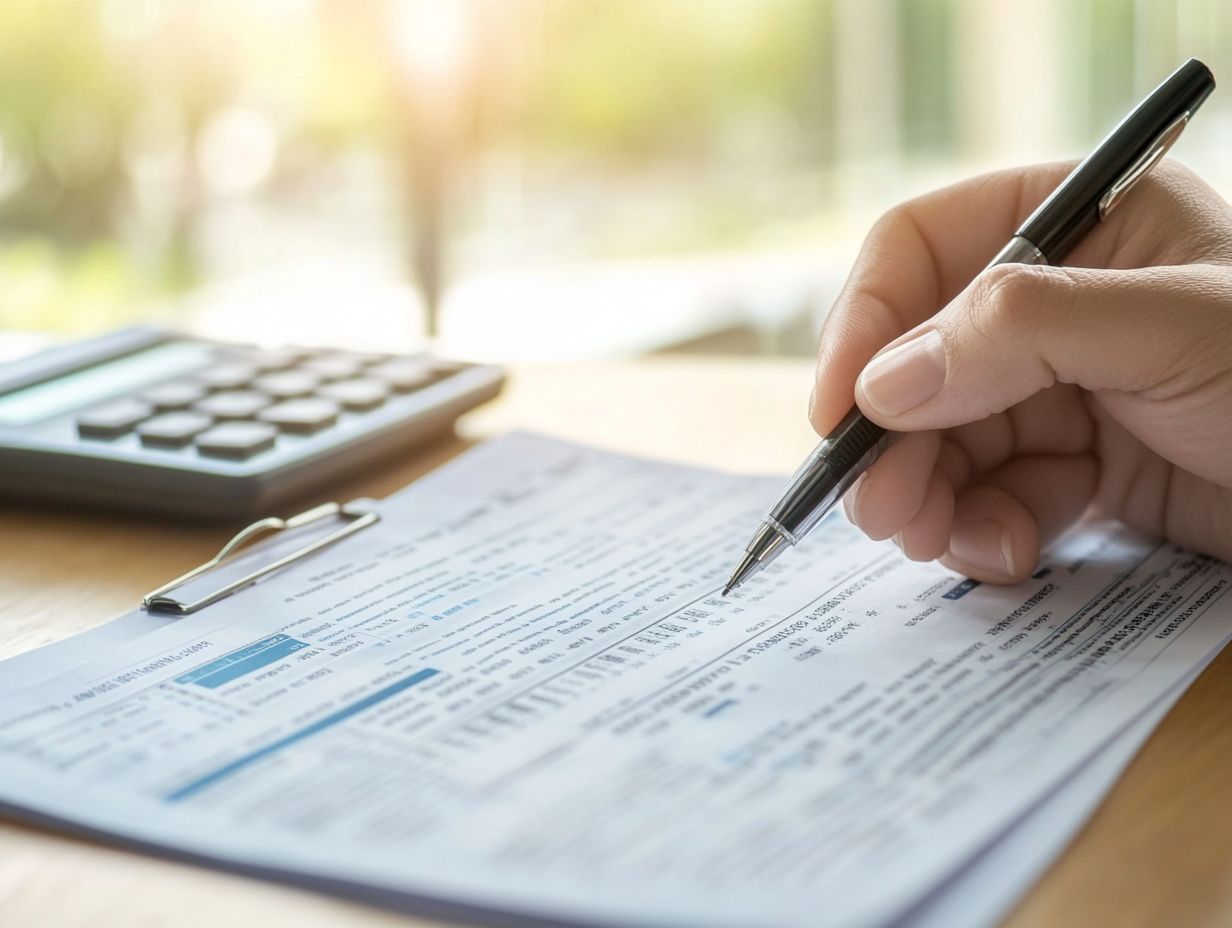What is a Credit Report?
Understanding your credit report is essential in today s financial landscape. This article breaks down the definition and purpose of credit reports, delving into their key components like credit scores and payment history and highlights their significance in your financial decision-making.
You ll learn how to access your credit report, gain insights into maintaining a strong credit score, and explore actionable steps to improve a less-than-ideal report. By the end, you’ll feel empowered to take charge of your financial future with confidence.
Contents
Key Takeaways:

- A credit report is a record of your credit history, including payment history and credit score.
- It is used by lenders to determine creditworthiness and can impact financial decisions like loan approvals and interest rates.
- You can access your credit report for free annually and should regularly review and manage your credit to maintain a good score.
Understanding Credit Reports
Understanding credit reports is paramount for effective financial management. They provide a comprehensive overview of your creditworthiness.
These reports detail essential elements such as your personal information, credit accounts, and payment history.
Generated by credit bureaus companies like Equifax, Experian, and TransUnion they collect and analyze financial data from various sources, including lenders and creditors. This information is crucial for identity verification and significantly influences your loan applications, mortgage approvals, and other important financial decisions.
Definition and Purpose
A credit report is a detailed document that outlines your credit history. It serves as an essential tool for evaluating your creditworthiness.
Lenders examine various factors such as your payment history, outstanding debts, and how much of your available credit you are using. This helps them assess the risk of extending credit to you. For example, during mortgage evaluations, financial institutions rely heavily on these reports to determine your loan qualifications and the interest rates they may offer.
You can also use your credit report to identify potential discrepancies that might indicate identity theft, helping to protect your financial future. Accurate information is critical; even a minor error could lead to higher interest rates or the denial of a loan application, affecting major life decisions like homeownership and your overall financial stability.
Components of a Credit Report
The components of a credit report include several sections that provide valuable insights into your credit behavior. These include your payment history, credit accounts, and public records.
Credit Score
Your credit score is more than just a number; it s a powerful representation of your creditworthiness. It s shaped by factors like your payment history and how much of your available credit you are using.
This important figure illustrates how effectively you manage debt and meet your financial obligations. It places significant emphasis on timely payments, outstanding debts, and the length of your credit history. Lenders consider this score a crucial element during the loan approval process.
A higher score not only boosts your chances of securing a loan but can also lead to lower interest rates. By understanding and maintaining an excellent credit score, you position yourself for favorable terms on mortgages, car loans, and credit cards.
It s essential to regularly monitor your credit report for accuracy and make informed financial decisions to keep your score shining bright.
Credit History

Your credit history reflects your past credit activities. It includes everything from existing credit accounts and balances to your loan repayment history.
This history weaves a crucial narrative of your financial behavior, offering lenders valuable insight into your reliability and creditworthiness. A well-maintained credit history can significantly influence your future borrowing opportunities, impact the terms of loans, and even affect your job prospects in certain industries.
It s essential to ensure your credit reports accurately reflect your financial activities. This accuracy relies heavily on timely and precise input from creditors and those who provide data, who report relevant information to credit bureaus. When these entities provide accurate data, it helps in constructing a trustworthy credit profile and safeguards you against the repercussions of errors that could jeopardize your financial engagements.
Accounts and Payment History
The accounts and payment history section of your credit report provides valuable insights into the status of your credit accounts and any collection items that might impact your creditworthiness.
This section plays a pivotal role in determining your credit score, as payment history constitutes a significant portion of the overall score calculation. When you pay your bills on time and keep your accounts in good standing, it reflects positively on your profile and enhances your creditworthiness. On the flip side, late payments can have enduring effects, potentially dragging down your score and signaling financial irresponsibility to lenders.
If your accounts end up in collections, the negative impact can be even more pronounced. Such events not only tarnish your credit profile but can also complicate your efforts to secure favorable loan terms down the road, highlighting the necessity of maintaining disciplined financial habits.
Why Credit Reports are Important
Credit reports hold significant importance in your financial decision-making process, as they directly impact the lending practices of mortgage lenders and credit card companies.
Understanding your credit report gives you the power to navigate the complex financial landscape with confidence.
Impact on Financial Decisions
The impact of credit reports on your financial decisions is profound; they serve as a crucial compass for lenders assessing your creditworthiness when evaluating loan applications.
These reports not only affect your chances of securing a loan but also play a pivotal role in determining the interest rates and terms you re offered. A robust credit report can pave the way for more favorable loan conditions, while a less-than-stellar credit history might lead to higher rates and less advantageous terms.
Make regular reviews of your credit reports a priority! They can help you catch issues before they become problems. By staying informed about your credit status, you can take proactive steps to maintain good credit, enhancing your prospects for approval and securing the best lending conditions possible.
How Lenders Use Credit Reports
Lenders rely on credit reports to evaluate your financial behavior, including your loan repayment history and identity verification, which directly influences their lending decisions.
By looking into these reports, lenders assess your reliability and responsibility as a potential borrower. For example, mortgage lenders often view your credit score as a crucial indicator of your ability to repay substantial amounts over extended periods. They also examine the amount you owe compared to what you earn to ensure you can manage such financial obligations effectively.
Conversely, credit card companies focus on recent credit inquiries and the types of accounts you hold to determine risk, allowing them to customize their offerings and interest rates just for you.
Lenders use these approaches to see how credit reports help them make informed decisions for each applicant. This demonstrates how credit reports function as a vital tool for lending institutions.
How to Access Your Credit Report

Accessing your credit report is essential for monitoring your financial well-being and ensuring the accuracy of your credit history.
You can get one free annual credit report from each major credit bureau, allowing you to stay informed and proactive about your financial standing.
Free Annual Credit Reports
You are entitled to one free annual credit report from each of the major credit bureaus, which are companies that collect and maintain your credit information. This gives you the opportunity to review your financial data for accuracy.
Accessing these reports is a breeze; simply visit AnnualCreditReport.com, where you can securely request your reports. Taking the time to inspect these documents is essential, as they not only provide insights into your current credit standing.
They also help uncover any potential identity theft or misinformation that could impede your future financial endeavors.
If you discover any discrepancies, it s vital to address them without delay by reaching out to the respective credit bureau to dispute inaccuracies. By establishing a routine for tracking these reports over time, you can enhance your financial health. This allows you to monitor changes or trends in your credit history for proactive management.
Other Ways to Access Your Report
Besides your annual free credit reports, you can access your credit profile through various financial companies that provide credit monitoring services.
These services offer a comprehensive overview of your credit status, often including alerts for changes that may signal identity theft. While the convenience and proactive features of credit monitoring can be quite enticing, weigh the potential drawbacks carefully.
Many of these services come with a monthly fee that can accumulate over time, and not every provider delivers the same level of protection or accuracy.
Continuous monitoring is essential for promptly detecting any unauthorized activity and ensuring your personal information remains secure. Thus, it s crucial to evaluate the benefits against the costs to make an informed decision about whether or not to utilize these services.
Managing and Improving Your Credit Report
Managing and enhancing your credit report is crucial for sustaining a robust credit score. This requires thoughtful strategies focused on effective debt management and meticulous financial planning.
Tips for Maintaining a Good Credit Score
Maintaining a good credit score involves several essential practices, including cultivating a positive payment history and managing your credit utilization effectively.
One of the most crucial steps you can take is to regularly review your account history. This allows you to catch any discrepancies that could adversely affect your score. Always watch for unauthorized transactions they can harm your score!
Setting up payment alerts and automating your payments can help you avoid missed deadlines, ensuring that your bills are paid consistently and on time.
Managing your credit limits wisely is also key; aim to keep your credit card balances below 30% of the total limit. By prioritizing these habits, you not only improve your credit score but also lay a stronger financial foundation for your future endeavors.
Steps to Improve a Poor Credit Report

Act now to improve your poor credit report every step counts! Improving a poor credit report demands a strategic approach, with a keen focus on minimizing collection items and rectifying inaccuracies in your financial data.
To begin, gather all relevant credit documentation and meticulously review your reports for any errors, such as incorrect payment statuses or accounts that don t belong to you. If you spot inaccuracies, you can file disputes with the credit bureaus, which might lead to essential corrections or removals.
Don t hesitate to reach out to your creditors directly to negotiate payment terms; an earnest conversation can often yield modified payment plans that are much more manageable for you. Establishing a solid budget to prioritize your debt payments will further enhance your financial standing over time, ultimately leading to a healthier credit report.
Frequently Asked Questions
What is a Credit Report?
A credit report is a detailed record of your credit history. It shows your credit accounts, payment history, and any inquiries made about your credit.
Why is a Credit Report Important?
A credit report helps lenders and landlords see how well you manage your finances. It can affect your chances of getting loans, the interest rates you receive, and even job offers.
How Can I Obtain My Credit Report?
You can get your credit report from the three major agencies: Equifax, Experian, or TransUnion. You re entitled to one free report from each agency every year.
What Information is Included in a Credit Report?
Your credit report includes personal details like your name, address, and social security number. It also lists your credit accounts, payment history, and any inquiries made about your credit.
What Factors Can Affect My Credit Report?
Several things can impact your credit report, such as late payments, high credit usage, and bankruptcy. Identity theft or mistakes on your report can also cause issues.
How Often Should I Check My Credit Report?
Make it a priority to check your credit report at least once a year. This helps ensure all information is correct and alerts you to any potential fraud.






